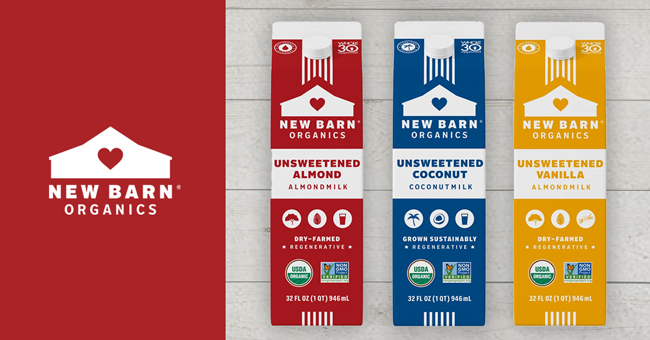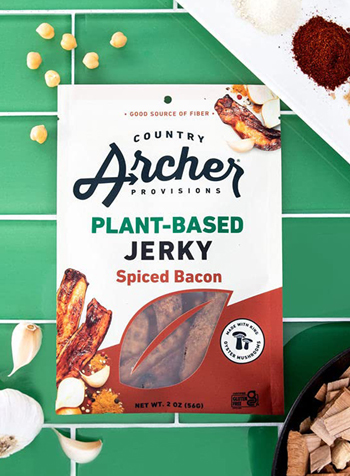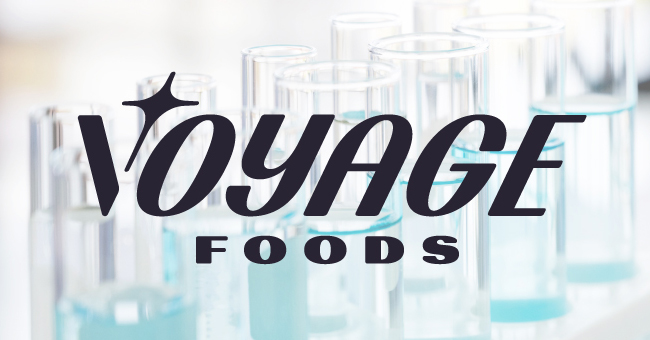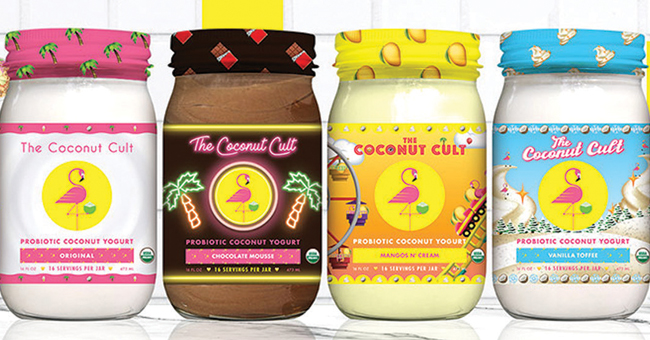NOSHscape: The Latest Food Brand News

Under NestFresh Umbrella, New Barn Preps Expansion
In June, plant-based food and beverage brand New Barn Organics was acquired by national egg producer NestFresh in a move that promised to allow both companies to provide a broader range of products and give the brand a new runway for growth. Over three months later, that promise is taking shape.
Now with the entire portfolio sporting refreshed packaging featuring bright primary colors intended to help the brand pop on shelf, New Barn is aiming to expand nationwide as a kitchen essentials platform in the curious position of selling both vegan milks and animal-based foods, via an egg line, with new innovations expected to fill out its offerings in the coming months.
Speaking to BevNET, Hannah Youngblood, sales coordinator at New Barn, noted that while the brand has faced challenges in the past, its integration into the NestFresh system is poised to support the brand via its robust nationwide operations.
The acquisition involved an unusual structure: NestFresh purchased all assets of New Barn including the brand and products, but the company’s existing shareholders still retain ownership. NestFresh now pays royalties for every product sold and if the brand is ever sold again shareholders will then see returns. Despite this structure, Youngblood said New Barn’s operations have now been entirely folded into NestFresh, giving the smaller company access to its full network of sales, marketing and supply chain support.
At the time of the sale, New Barn was a smaller player in the plant-based milk category. According to IRI, in the 52-week period ending June 13, New Barn’s ready-to-drink almond milks were down -35.7% to $150,000 in sales, while additional milks classified as refrigerated fell -61.1% to $66,100. While the data shows only a limited selection of the brand’s sales, the company had struggled to find its footing in recent years, including a move in 2019 to drop several product lines and scale back its retail footprint to 3,000 stores on the West Coast.
The goal of New Barn’s refreshed branding, Youngblood said, is to simplify its messaging through a color code system (Coconutmilk is blue, Almondmilk is red, etc.) to help the products pop on shelf and reduce consumer confusion. Though the core brand identifiers are still there, certain tweaks have been made: for one, the barn silhouette in the logo now features a heart. The new 32 oz. cartons also include new callouts, such as the Whole30 Approved badge, non-GMO Project verified and a symbol noting the products use sustainably sourced, dry-farmed almonds.
“When we were thinking about it and brainstorming, we really wanted shoppers to have an almost nostalgic feeling of pulling from a crayon box when they’re going to pick up their product from the shelf,” Youngblood said.
The design was developed by New Barn co-founder Kerry Robb, who shared on LinkedIn in August that the front-of-pack white band “visually widens the carton” — a response, she wrote, to consumers who felt the carton looked “overly thin” on shelf.
Now, NestFresh is looking at how to best expand New Barn’s portfolio under a cohesive vision after several years of cycling through innovations including flavored almond milks, cold brew coffees, vegan dips and frozen dairy desserts.
The plant-based milk lineup currently features Coconutmilk, Almondmilk and Vanilla Almondmilk (all unsweetened) as well as a non-organic Barista Blend, which will see an organic upgrade rolling out in the near future. Last year, New Barn also launched a line of eggs, initially supplied by NestFresh prior to the deal, in Multicolored and Pasture Raised varieties. Sold in one dozen cartons, the eggs perhaps best reflect the intertwined nature of New Barn and NestFresh and present an opportunity for New Barn to expand further into premium animal-based products.
According to Youngblood, the brand is aiming to appeal to flexitarian consumers who prefer plant-based milks but still consume some animal products, with a long term goal of transitioning into a platform brand focused on pantry staples. While the breakfast occasion is the most common day-to-day use for the portfolio, Youngblood added that the products will also be designed with cooking and anytime use in mind.
“What we learned is that a lot of our fans are flexible in their eating habits,” she said. “And so by incorporating the eggs into the brand, we’re focused on making the staple foods that people actually eat. So that’s almond milk for your cereal, butter for your toast, creamers for your coffee — all things that we eat in the morning — and we really felt that eggs were a perfect addition to our lineup.”
While plant-based butters are not currently listed on New Barn’s website, despite previously being sold, Youngblood said the category is among the focuses for the revamped brand alongside milk and eggs. According to NestFresh marketing manager Sotheary Hom, the company is also developing several new innovations with broad line expansion plans, including new flavors, seasonal holiday items (hinting at an “egg and almond milk” product), grab-and-go beverages and other products tailored to lactose intolerant consumers.
“I think the strategy going forward is we really want to focus on R&D and get feedback from customers to see what the next big item might be,” Hom said. “So we’re really taking a different approach on launching new items.”
Youngblood said the West Coast remains the brand’s strongest market but the goal is to now bring the products nationwide again. The brand has already rolled out into New England and into Hawaii, with the natural and specialty channel remaining the focus including retailers like Whole Foods, Mother’s Markets and Erewhon.
NestFresh operates distribution centers throughout the country that allows New Barn to go direct to many of its retailers and the brand is also distributed through some DSD partners and UNFI and KeHE, Youngblood said. New Barn’s milks are also sold direct-to-consumer online which has helped to grow the brand in the middle of the country.
“I would say that we’re really committed to partnering with retailers who will support an opportunity to grow in new markets and can be essentially anchor retailers for us in those new markets,” Youngblood said.
Country Archer Launches Mushroom Jerky, Brings on New Executive Team
Meat Snacks brand Country Archer is making moves from grass-fed beef to mushrooms, announcing the launch of a new line of plant-based jerky. The launch comes after the company also added new CPG leaders to its executive team in preparation for its next phase of growth.
Debuting online and then in Sprouts and Whole Foods Markets later this year, Country Archer’s Mushroom Jerky will be available in Hickory, Spiced Bacon and Barbecue flavors. The plant-based line will retail for $7.99 for a 2 oz. bag, a slight increase in price over the brand’s grass-fed beef and zero sugar jerky.
Unlike many other plant-based jerkies on the market, Country Archer’s line is gluten-free and soy-free, using a base of king oyster mushrooms in place of other meat alternatives such as soy or pea protein. Still, despite the fungi base, the line has four grams of protein per serving and three grams of fiber.
Establishing a presence in plant-based meat had always been part of the brand strategy since 2019, CEO and founder Eugene Kang said, with the question more a matter of when rather than why.
“Most brands will chase innovation without really looking at data and some proof validation points,” Kang said. “We had conviction that plant-based jerky was going to be a subcategory. I think where we did not have clarity on is what was truly going to move the needle in terms of where consumers wanted it to be.”
To begin setting the stage for the pivot, the company underwent a rebrand in 2020 and also changed its name from Country Archer Jerky to Counter Archer Provisions — a subtle difference Kang said offered it permission to play in more categories. With the new design in hand, and several new beef-based launches on shelves, Kang said, there was time to invest in the new plant-based product without risking the core business.
“I think we’re actually probably entering at the right time,” Kang said. “It’s hard, right? How do you have permission to enter into a category and subcategory, that hasn’t really been proven out yet?”
There are certainly plenty of other plant-based jerkys on the market, with Louisville Vegan Jerky Company, Gardein and It’s Jerky Y’all all offering 100% vegan lines. Meanwhile, both Krave Snacks and Perky Jerky have both launched plant-based options to compliment their meat jerkys and Pan’s, Moku and Eat the Change have both launched their own mushroom-based products.
Still, Kang said, in his opinion most of these options fall flat when it comes to both offering a clean ingredient deck (in particular, avoiding highly processed soy) and great taste. For Country Archer, the goal was to create a product that wouldn’t just appeal to vegans, but instead also flexitarians. That meant creating a line that had the chew and texture of traditional meat-based jerky.
“Being authentic to who we are as a brand, I don’t think that it would have made sense for us to come out with another soy based protein jerky,” Kang said. “We had to do it in a way that fits the broader pieces and ethos of our business, and that’s using real ingredients.”
For that, the company once again partnered with chef Will Horowitz, the owner of (now closed) restaurant Duck’s Eatery, who had also crafted Country Archer’s Zero Sugar Jerky line last year. Horowitz has developed a reputation in the industry for creating whimsical plant-based versions of meat dishes, such as a carrot hot dog or watermelon-based ham.
The resulting jerky is notable not only for its meat-like experience, Kang said, but also because it can be processed using the same marinades and machinery as its meat products, allowing the company to save on costs.
Country Archer is currently sold in more than 17,000 retailers across club, mass, foodservice and natural channels, including Whole Foods Market, Starbucks, Safeway, Costco, Kroger, Target, 7-Eleven and Hudson News. In the natural channel, Country Archer has a 30% share of the jerky segment, Kang said, and launching the new plant-based line will help the company deepen that presence. Plant-based options currently represent 12% of the natural meat snack category across meat snacks, jerky and sticks, he said.
At the same time, the company will seek to avoid cannibalization from its existing core line of meat snacks.
“We want to fish where the fish are swimming,” Kang said. “What we don’t want to do is introduce [consumers to] plant-based ahead of our core line, because the reality is we still have so much whitespace in conventional, convenience, club and mass with our core jerky line…we have this partnership dynamic that allows us to be a little bit more adventurous in natural, but we don’t have that same level of depth in conventional just yet.”
Going forward, the company plans to explore other ways to also capture flexitarian eaters either with other plant-based snacks or hybrid products that focus more on reducing meat consumption.
On the business side, the company has also invested heavily in building out its executive team. In June, Adam Razik (the former COO/CFO/Co-founder of Bright Foods and former GM of Kevita) joined as CFO while in May Stephanie Paras (the former VP of operations for RxBar) joined as COO. The duo joins Michelle Flegel (former EVP of sales at Tillamook Country Smoker), who came on in January to run sales.
“You can have the best brand and the best product, but if you don’t have the right talent in place, you literally handicap yourself as a business,” Kang said. “It’s a different level of experience to go north of $100 million and that’s the goal.”
Voyage Foods Seeks to ‘Future Proof’ Favorites via ‘Food Architecture’
Voyage Foods wants to make sure consumers’ favorite foods are around for the next generation. Ironically, the path to ensuring this continuity means eschewing their core ingredients entirely. The company announced it will launch a cacao-free chocolate, peanut-free peanut butter and coffee-free coffee — all made using patented technology and easily accessible ingredients.
Founded in late 2020 by CEO Adam Maxwell, a veteran of “molecular spirits” company Endless West, Voyage has already raised $5.8 million from investors including Valor Siren Ventures and Horizon Ventures.
The company’s ultimate goal is to revolutionize the food industry by offering affordable and sustainable alternatives to products with problematic supply chains — be it contributing to climate change or deforestation or issues surrounding fair labor practices. Other areas of focus also include replicating foods that are associated with food allergies (such as peanut butter) or that utilize crops that may struggle in the future due to climate change (such as coffee). Though some might argue that the best way to create these products would be to fix the existing issues, Maxwell counters by noting that some crops may simply cease to exist given current farming practices.
“It’s inevitable,” he said in reference to crop extinction. “We’re not fixing coffee cultivation in any way, shape, or form, but hopefully we are part of the solution of making sure that as the supply goes down because of environmental changes, and as consumption goes up, that people can still afford to drink a cup of coffee all over the world.”
While Maxwell remains an advisor to Endless West and counts himself an oenophile, he said the impetus to start the company came from a desire to create an “issue-driven” company that could improve the food system. While Endless West showed him that “it’s possible to do the impossible,” in the end, he said, the spirits industry can only do so much for the planet.
“It’s hard to be truly a mission driven spirits company,” Maxwell said. “I have nothing wrong with the spirits industry, but like, at the end of the day, you are selling poison.”
Rather than looking for one solution, Voyage uses a combination of process chemistry, process engineering, analytical chemistry, sensory science and data analytics. Unlike many other plant-based companies, these are all technologies that are readily available. Maxwell said, just utilized in a new fashion.
However, unlike some other food tech players, Voyage does not seek to molecularly match its synthetic products to the original ingredient sources. Instead, its scientists analyze taste, texture, smell and appearance as a whole, and reverse engineer what ingredients could be used to recreate these sensory responses. The result, Maxwell said, is a product that is “decoupled” from its “source material,” instead using the “closest precursor” to that ingredient, but still providing the same experience to the end consumer.
“So much of what we’re doing is based on taking everyday things and transforming them into these value added goods,” Maxwell said.
Because the company looks to utilize easily accessible commodity crops as well as upcycled ingredients, Maxwell said, the product’s nutritional panel is also easy for consumers to understand, with a short ingredient list such as fats, grapeseed, sunflower meal, sugar, salt and natural flavors. It also is non-GMO.
Another point of differentiation comes from production. Maxwell noted, for example, that NotCo purchases “off the shelf” ingredients and combines them, while Eat Just doesn’t do their own extraction or protein purification. Voyage, in comparison, does everything in-house at its Oakland, Calif. headquarters — from scientific research to the processing of ingredients to the manufacturing.
Voyage just recently finished building out its 25,000 square foot plant by using off the shelf equipment that has been modified by Voyage, Maxwell said production is “easily scalable.” The company decided to keep production in-house not only because it allows them to “capture more of the value chain,” but also because it will eventually allow better pricing of its products, he added.
“[Thinking about the] cost margin structure, we want to build an enduring business and we want to be able to have really accessible, cost-effective products,” Maxwell said. “There is the initial capex, but it will pay for itself much faster then I think anyone would believe just based on our cost of goods structure.”
First up, the company will debut its peanut-free peanut butter this November, both in larger foodservice packages and shipped direct-to-consumers in jars. The target market will be shoppers who are allergic to peanuts or restaurants and schools that have had to stop using the ingredient.
For the launch Voyage plans to invest in consumer education, explaining to shoppers that despite its name, its peanut butter won’t cause an allergic reaction, something that differs from other products that seek to molecularly mimic ingredients. For example, Perfect Day’s animal-free whey protein cannot be consumed by those people with dairy allergies.
To support the launch, and future development, Voyage plans to close an “eight figure” round of capital later this year.
The coffee, which will be offered as a ready-to-drink beverage and concentrate, as well as the chocolate, sold in bar form, will hit the market in the first half of 2022. The dual strategy of investing in physical products while also being an ingredient supplier is one that many other plant-based food tech providers — namely Perfect Day, Beyond Meat and Impossible Foods — have all also utilized.
All items will be priced “comparably” to their counterparts in the market, and the goal is to eventually have them priced in line with more commodity options. For example, once Voyage hits five to 10 million pounds a year of chocolate, Maxwell said there should be price parity.
That pricing is important not only to make sure that everyone can still have their favorite cup of joe, but also in order to get large producers to turn to Voyage for ingredients, Maxwell said. As a stand-alone brand, there’s only so far the company can go, yet at the same time, it needs to start somewhere.
“For proof of concept and to validate the technology works and to validate that there is a customer base for it…we will be launching a consumer brand later this year,” Maxwell said. “[But] for thinking about how we can make the most impact and function at the highest scale, then yeah, definitely, we’d have to be on the ingredient side.”
Once Upon a Farm Co-Founder Heads to Coconut Cult as CEO
founder and president Ari Raz announced in August he has joined Coconut Cult as the company’s new CEO.
As Raz joined the team in early August, Coconut Cult’s co-founder and now former CEO Noah Simon-Wadell also shifted his focus to product development and creative projects in his new role as chief innovation officer. Raz will remain based in San Diego, with the company’s production team of 11 employees continuing to operate from its San Luis Obispo, California manufacturing facilities. Additional team members in sales, marketing and administration will likely work remotely.
Raz co-founded cold-pressed baby food brand Once Upon a Farm in early 2015 and served as the company’s CEO until 2017. At that time, former Annie’s CEO John Foraker took over the role, also becoming a co-founder alongside actor Jennifer Garner, and Raz took on the position of president of the company.
For the last four years Raz has focused on the childrens’ food brand’s e-commerce efforts and specialty sales. When Foraker joined the brand, Raz said, the company needed a more seasoned executive at the helm, but after four years working under Foraker and alongside a team of experts in their respective fields, he feels more confident with his own leadership skills.
“[In 2017] I wanted to lose some responsibility across departments because I did not have the experience required to scale any of those departments as quickly as they needed to be scaled and John knew what to do,” Raz said. “I’ve learned what steps were taken in the short, mid and long term to really turn Once Upon a Farm into a world class CPG operation. I’ve really gotten the full scope of what that entails and I do feel far more ready and far more comfortable assuming this role today.”
The company’s yogurts are currently sold in roughly 800 doors. The products’ unique tart flavor profile, higher price point (on the company’s website, an 8 oz jar is roughly $19 while a 16 oz jar is $39), and labor intensive manufacturing process has put Coconut Cult on a slower growth trajectory, Raz said, adding that his immediate priority will be to bring in additional talent that can help the company quickly add more retailers and new channels.
“My goal is to deliver innovation that will open up new channels — [moving] beyond our current line,” Raz said. “I’m making big shifts in our strategy because we need to make these calls in order to really emerge in a big way.”
To support these efforts, Coconut Cult is currently in the process of raising additional capital, with 35% of the funds closed already and a final round expected to close later this year. Investors in the brand include CircleUp and Able Partners.
Raz declined to comment on the details of any new products, but added that the company is focused on new items that can have a broad appeal because “our current line is not appropriate for many channels.”
To that end, the company also announced that it will discontinue it’s probiotic, plant-based gelato line, which had launched in summer 2019. Raz said for now, he believes the company needs to focus and the frozen line not only “stymied.


Receive your free magazine!
Join thousands of other food and beverage professionals who utilize BevNET Magazine to stay up-to-date on current trends and news within the food and beverage world.
Receive your free copy of the magazine 6x per year in digital or print and utilize insights on consumer behavior, brand growth, category volume, and trend forecasting.
Subscribe

